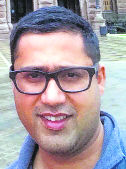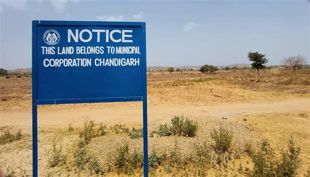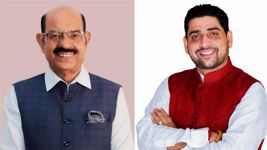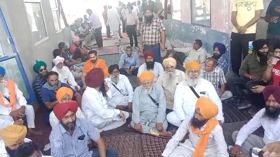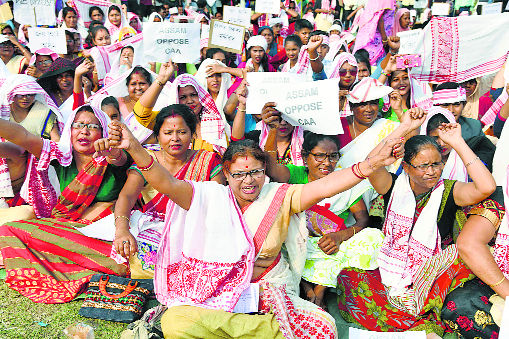
Luv Puri
Journalist and Author
The Citizenship (Amendment) Act has ignited international criticism from various quarters, including the most recent announcement by the UN High Commissioner for Human Rights, Michelle Bachelet, regarding the filing of an intervention application in the Supreme Court.
In this context, the criticism emanating from outside, particularly from the UN, needs to be better understood. Within the UN, a de facto divide has existed in terms of strategy and practice between Geneva and New York, even though entities in both stations are part of the UN Secretariat. Both the Office of the High Commissioner for Human Rights (OHCHR) and the High Commissioner for Refugees (HCR) have their headquarters in Geneva, whereas the UN Headquarters is in New York.
On paper, inter-agency/department coordination is an integral part of the UN’s internal work and the principle of one UN is the public line. However, it is open knowledge that in such a big organisation, coordination remains a challenge. On many critical files or escalating scenarios, there have been differences in terms of approach among various entities working on various mandates from the General Assembly or the Security Council. This has come out quite openly in UN-mandated review reports available in the public domain. The OHCHR has an advocacy mandate and that enables sufficient autonomy to the High Commissioner to express preemptive concerns on a particular issue through the lens of human rights.
At the practical level, the overall approach of the senior leadership of the UN is to harness the comparative advantages of various entities. For instance, an entity such as the OHCHR can be critical on an issue while the political unit at the UNHQ performs more of a diplomatic function by keeping the doors open with the parties in question to sensitise them of their concerns. Depending on the gravity of the situation, the Secretary-General takes a call and issues a statement of concern. He or other senior member may also directly engage with the stakeholders in question, including the state representatives or the Permanent Representative of the specific member-state in question at UNHQ.
Coming to the issue of the CAA, there were two substantive statements from the UN senior leadership. The High Commissioner for Human Rights asserted that ‘there exist a number of religious groups considered religious minorities in these countries (Pakistan, Bangladesh and Afghanistan), especially of the Muslim faith, including Ahmadi, Hazara and Shia Muslims, whose situations would warrant protection on the same basis as that provided in the preferential treatment proposed by the CAA.’ Her line of argument is that the CAA is discriminatory and even Muslim communities of the three countries mentioned in the CAA should be brought under the ambit.
The Secretary-General’s statement on the CAA has a slightly different emphasis. He has invoked fears of potential statelessness of a large number of Muslims in the aftermath of the CAA. The Secretary-General, who had been the High Commissioner for Refugees (HCR) for 10 years before his present tenure, stated that measures must be taken ‘to ensure that every citizen of the world is also a citizen of a country.’ ‘It is absolutely essential that when nationality law is changed, statelessness is prevented,’ he emphasised.
It is the political and geographical context that explains the fears of the CAA, particularly from the Secretary-General. As the High Commissioner for Refugees, he had been outspoken about the Rohingya crisis and is well aware of the nuances of the issue. Rohingya are one of the largest stateless communities in the world. Many attribute that their condition exacerbated because of Myanmar’s exclusionary citizenship law that was passed in 1982. The law de facto made it difficult for the Rohingya community to comply with the stringent provisions. The situation progressively developed and finally resulted in a forced departure of more than 0.8 million Rohingya to Bangladesh in the last one decade. Human rights groups have levelled criticism that despite repeated warnings, the international community failed to protect the Rohingya.
It is this experience that has created the fear of a potential fallout of the CAA on Muslims in India, particularly Assam. However, in Assam, the political reality of the CAA has its own context, particularly the complexities within the Muslim community residing there. With a population of 30.57 million, ethnicity trumps religion in Assam. The Muslim population in the state is around 10.7 million. As many as 4.2 million indigenous Assamese Muslims, such as Goria, Moria, Deshi, Jolha, Mimol, Pingle and Kochari, live in the state apart from Bengali-speaking Muslims. They have been a part and parcel of the Assamese history, language and culture.
The political representation of these communities is minimal. Along with other Assamese communities, they have been part of the agitations for state autonomy and safeguarding ethnic rights. The complex story doesn't end in Assam. Arunachal Pradesh, Nagaland and Mizoram have the Inner Line Permit mandatory for other Indians, which makes it mandatory for all visitors, including Indian citizens from other states, to take a permit to enter these states. Manipur was recently brought under the permit system. Now, even in Meghalaya, there is a demand for the Inner Line Permit (ILP) system.
Understandably, in the post-CAA phase, the criticism from various external quarters, including the bureaucracy of the multilateral organisations, may not have factored in these political complexities as domain expertise and knowledge on complex issues is limited due to broader structural reasons of these organisations.
However, the best course to meet such criticism as a mature democracy is to first assuage the anxieties of various domestic stakeholders, particularly those living in the North-East.
Join Whatsapp Channel of The Tribune for latest updates.






